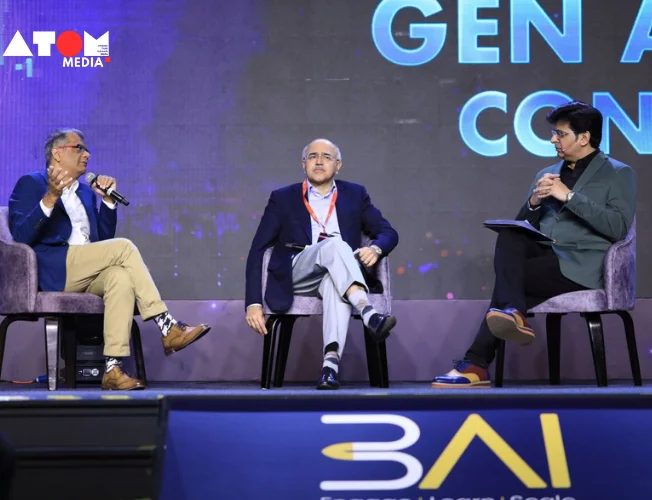AI Impact on Responsibility and Ethics
The rapid development of artificial intelligence (AI) has brought forth both opportunities and challenges, sparking discussions among industry leaders regarding the responsibility associated with AI-driven platforms and systems. At the GenAI Summit in Bengaluru, hosted by Inc42, leaders emphasized the need for regulations in the AI space and the importance of protecting data privacy.
Insights from Panel Discussion
During a panel discussion titled “The Blueprint for Responsible AI,” Sanjay Mohan from MakeMyTrip, Nikhil Gupta from LimeChat, and Kalpana Bansal from Darwinbox shared insights into responsible AI practices. Moderated by Jyoti Pawar from Microsoft India, the session delved into the intricacies of ensuring ethical AI deployment.
Ensuring Responsible AI at MakeMyTrip
Sanjay Mohan emphasized MakeMyTrip’s commitment to responsible AI by prioritizing company-owned data to provide validated information. Mohan highlighted the significance of trustworthy data sets in fostering responsible and ethical AI practices. He also discussed MakeMyTrip’s initiatives to make travel accessible through AI-driven solutions, such as enabling voice-based shopping in multiple languages.
Transparency and Understanding
Nikhil Gupta of LimeChat underscored the importance of transparency and understanding in responsible AI deployment. He emphasized the need for clarity regarding the outcomes derived from AI solutions and the necessity for users to comprehend the underlying processes. Gupta stressed the significance of ensuring that users can interpret AI-driven outcomes accurately to avoid misinterpretation.
AI’s Impact on Job Market
The debate surrounding AI’s potential to replace human jobs has gained momentum, with experts weighing in on its implications. IBM predicts that individuals utilizing AI will outpace those who do not, raising concerns about job displacement. However, the International Labour Organization (ILO) suggests that AI will complement human labor rather than entirely replace it. AI is anticipated to create new job opportunities as industries evolve.
Mitigating Impact on Jobs
Kalpana Bansal of Darwinbox highlighted the potential impact of AI on the job market, particularly for individuals in the middle segment. While AI may disrupt repetitive tasks, Bansal emphasized the continued need for human judgement. She stressed that AI’s role should be viewed as a support function rather than a substitute for human labor.
The Need for Regulation
Speakers at the GenAI Summit emphasized the necessity of regulatory frameworks to govern the AI industry. They stressed the importance of safeguarding data privacy and mitigating risks associated with AI applications. Discussions revolved around the ethical implications of AI practices and the need to balance innovation with responsible deployment.
Indian GenAI Sector’s Growth Trajectory
The discussions on responsible AI practices coincide with the unprecedented growth of the Indian GenAI sector. With over 100 GenAI startups and a cumulative funding of $600 Mn+ since 2019, India’s AI ecosystem is flourishing. Companies like SarvamAI and Krutrim are leading the charge by focusing on indigenous language model developments, contributing to the sector’s projected growth to surpass $17 Bn by 2030.
Read more: Marketing News, Advertising News, PR and Finance News, Digital News





